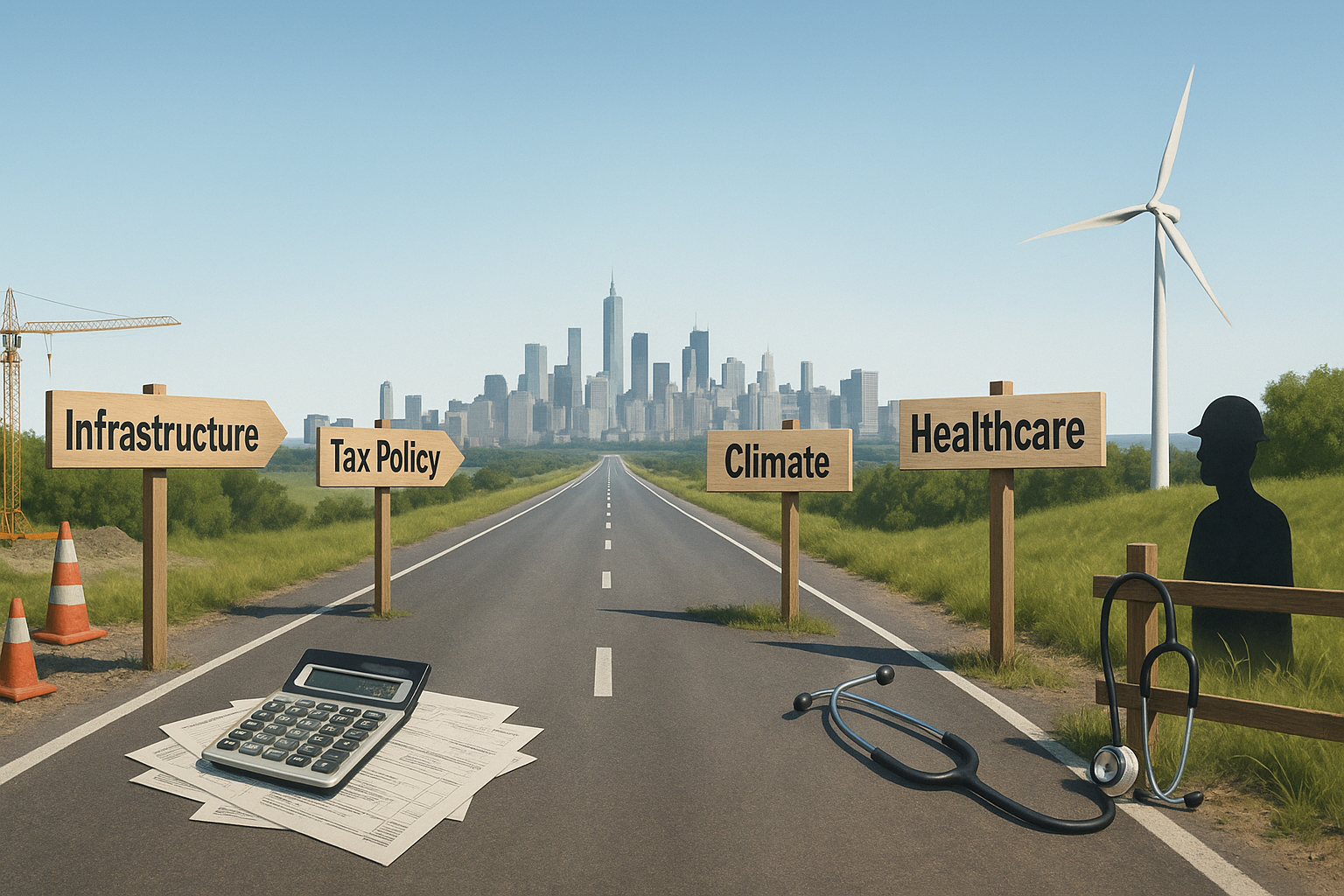The economic policy environment in July 2025 feels like we're collectively holding our breath. After the flurry of major legislation in 2023-2024, we've entered what some pundits are calling a "policy plateau" - though I think that underestimates the significant work happening behind the scenes.
The Infrastructure Modernization Act's implementation is finally hitting its stride - I drove through three different construction zones on my way to work yesterday, all sporting those now-familiar "Building Better 2025" signs. While the traffic is annoying, it's good to see the funding actually reaching projects on the ground after the initial delays.
On the tax front, the uncertainty is palpable. The partial extension of the 2017 tax cuts expires in just five months, and I've heard conflicting reports about what might replace them. My accountant suggested last week that I should prepare for at least three different scenarios for next year's tax planning - not exactly reassuring!
Climate policy continues to evolve in interesting ways. The carbon adjustment mechanism that took effect in January has already shifted import patterns - something I noticed when researching price changes for consumer goods. European manufacturers seem to be the early winners, while certain Asian exports have become notably more expensive on American shelves.
Healthcare reform - once the centerpiece of political debates - has taken a backseat to economic and security concerns. The incremental changes to prescription drug pricing that passed last year are just beginning to affect markets, with mixed results so far (my mother's medication got cheaper, mine got more expensive - go figure).
For small businesses (I consult with several), the regulatory environment feels particularly unpredictable right now. The Small Business Administration's new lending programs are promising but wrapped in so much red tape that many eligible owners aren't even applying.
What's missing from the current policy discussion, in my view, is a coherent vision for workforce development. With automation continuing to transform industries at breakneck speed, I'm surprised we're not seeing more comprehensive proposals addressing the skills gap.
As we move deeper into 2025, I expect economic policy to return to center stage - especially as preliminary GDP figures for Q2 are released next week. Those numbers will likely shape the policy conversation for the remainder of the year.
